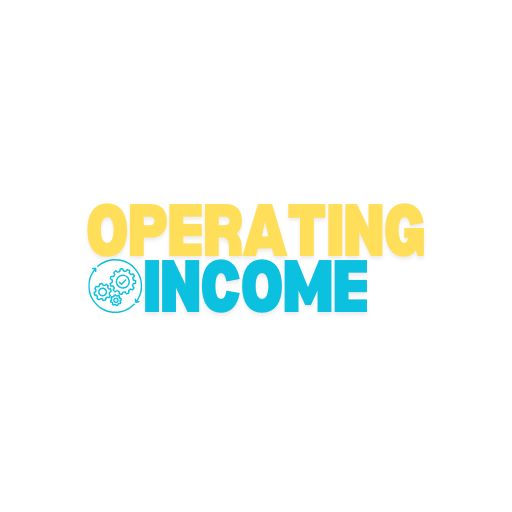Affiliate links for the products on this page are from partners that compensate us and terms apply to offers listed (see our advertiser disclosure with our list of partners for more details). However, our opinions are our own. See how we rate products and services to help you make smart decisions with your money.
- Some credit unions let you join online from anywhere in the U.S.
- To become a member, give a small donation to a foundation or open a savings account.
- You’ll prefer a credit union over a traditional bank if you want to earn a higher interest rate.
Credit unions require membership to open a bank account or utilize services. Usually, you’ll have to work for a select employer or live in a specific city or county.
However, some credit unions have pretty easy membership requirements that you let join from anywhere in the U.S.
If you’re open to banking with a credit union over a bank, we’ve put together a list of available credit unions for every consumer so you can join a credit union with open membership.
Credit Unions With Easy Membership Requirements
1. Affinity Plus Federal Credit Union
Affinity Plus Federal Credit Union
Annual Percentage Yield (APY)
Varies depending on account
Minimum Opening Deposit
Varies depending on account
- Free savings, checking, certificate, and money market account options
- Low or no minimum opening deposits
- Pays high interest rates on certificates and money market account
- Rewards program
- No non-sufficient funds fees; no overdraft fees if you withdraw by under $100
- Low interest rate on savings
- Compounds dividends monthly, not daily
- $15 overdraft fee
- No overdraft protection if you withdraw by over $100
Product Details
- 29 branches in Minnesota
- Non-Minnesota residents can still open accounts online
- 60,000+ free ATMs in the MoneyPass, Co-op, and SUM networks
- MyPlus Rewards program gives you points for spending money on your APFCU debit and credit cards, maintaining a certain amount of money in your accounts, and taking out loans
- Redeem points in categories such as travel, cash back, donating to charities, and reducing your loan interest rates
- Dividends compound monthly
- Federally insured by the NCUA
Why it stands out: Affinity Plus Federal Credit Union pays high interest rates on its money market account and CDs. It also has a rewards program that lets you earn points if you keep a certain amount of money in your account or use a bank credit card.
Membership requirements: The easiest way to join Affinity Plus Federal Credit Union is to donate $25 to the Affinity Plus Foundation and open a savings account. Affinity Plus Federal Credit Union has 26 branches in Minnesota and has additional ways to become a member if you live or work in the state.
Affinity Plus Federal Credit Union Review
2. Alliant Credit Union
Alliant Credit Union
Annual Percentage Yield (APY)
Varies depending on account
Minimum Opening Deposit
Varies depending on account
- High interest rates on savings account and CDs
- Low minimum opening deposits
- Interest-earning checking account
- Reimburses up to $20 in out-of-network ATM fees
- No overdraft fees
- No money market accounts
Product Details
- Online bank with no physical branch locations
- Access to 80,000 free ATMs nationwide
- Interest on interest-earning accounts compounds monthly
- NCUA insured
Why it stands out: Alliant Credit Union has high-interest savings and checking accounts with low minimum opening deposits.
Membership requirements: You’ll be able to become a member of Alliant Credit Union if you join Foster Care to Success, a non-profit organization focused on foster youth (Alliant covers the $5 joining fee). You’ll also be able to join the credit union if you live in certain parts of Illinois or work at an eligible employer.
Alliant Credit Union Review
3. Bethpage Federal Credit Union
Bethpage Federal Credit Union
Annual Percentage Yield (APY)
Varies depending on account
Minimum Opening Deposit
Varies depending on account
- Open accounts at a branch or online from anywhere in the US
- Large free ATM network
- Easy to become a member (just open a savings account with $5)
- High interest rates on checking, certificate, and money market accounts
- No monthly service fees
- Doesn’t charge out-of-network ATM fees
- Only branches are in New York State
- Low interest rate on savings account
- No free overdraft protection ($5 fee for transferring money from savings)
- Doesn’t refund any fees charged by out-of-network ATM providers
Product Details
- 32 branches around New York State
- Non-New York residents can still open accounts online
- 5,000 shared branches and 30,000 shared ATMs in the Co-op network
- Become a member by opening a savings account with $5
- Federally insured by the NCUA
Why it stands out: Bethpage Federal Credit Union pays high interest rates on checking, certificate, and money market accounts. The certificates are especially appealing if you’re looking for an institution with a low minimum opening deposit — you’ll only need $50 to open one.
Membership requirements: Bethpage Federal Credit Union lets you join online from anywhere in the U.S., as long as you open a savings account with at least $5.
Bethpage Federal Credit Union Review
4. Blue Federal Credit Union
Blue Federal Credit Union
Annual Percentage Yield (APY)
Varies depending on account
Minimum Opening Deposit
Varies depending on account
- Easy to become a member
- Bank online, visit branches in Colorado and Wyoming, or visit shared branches around the US
- Pays high interest rates on certificates
- No monthly service fees
- Checking account offers unique perks like roadside assistance and ID theft aid
- Overdraft protection through Protect-a-Check
- Interest compounds monthly, not daily
- Poor mobile app ratings
- $30 overdraft fee
Product Details
- 20 branches in Colorado and Wyoming
- You can also open accounts online from around the US
- 30,000 shared branches and 5,000 free ATMs in the Co-op network
- The easiest way to become a member is to donate $5 to the Blue Foundation; you’ll also qualify if you work for a Select Employee Group or one of several armed forces groups
- Dividends compound daily
- Federally insured by the NCUA
Why it stands out: Blue Federal Credit Union pays solid rates on certificates. The credit union also offers 24/7 live customer service, which is ideal if traditional banking hours don’t work for you.
Membership requirements: The easiest way to join is by donating $5 to the Blue Foundation and opening the Blue Federal Credit Union Membership Share Savings Account with another $5. However, if you live in Colorado or Wyoming, you also may qualify if you meet another membership requirement.
Blue Federal Credit Union Review
5. Connexus Credit Union
Connexus Credit Union
Annual Percentage Yield (APY)
Varies depending on account
Minimum Opening Deposit
Varies depending on account
- Easy to become a member
- High interest rates
- No monthly service fees
- Several overdraft protection options
- Branches are only available in Illinois, Minnesota, and Wisconsin
- High minimum opening deposit for certificates
- Interest compounded monthly or quarterly, not daily
Product Details
- 15 branches in Illinois, Minnesota, and Wisconsin
- 5,000 shared branches in the Co-op network; 67,000+ free ATMs in the Co-op and MoneyPass networks
- To become a member, be an employee, retiree, family member, members, student, or student alum of certain companies and organizations; live in certain counties or cities in Illinois, Ohio, Minnesota, or Wisconsin; be a family member, household member, or spouse of existing Connexus member; or join the Connexus Association with $5
- Dividends compounded monthly or quarterly
- Federally insured by the NCUA
Why it stands out: Connexus Credit Union pays competitive interest rates on all of its accounts. The Connexus Xtraordinary Checking Account is a solid choice if your priority is finding a high-yield checking account.
Membership requirements: Connexus Credit Union lets you join online from anywhere in the U.S. if you make a $5 donation to the Connexus Association. If you or a family member live in Minnesota, Ohio, or Wisconsin, see if you meet one of the credit union’s other membership requirements.
Connexus Credit Union Review
6. Consumers Credit Union
Consumers Credit Union
Annual Percentage Yield (APY)
Varies depending on account
Minimum Opening Deposit
Varies depending on account
- Membership is open to anyone in the US (pay a $5 membership fee)
- Immigrants and non-US citizens may be eligible to join
- Free rewards checking account
- Competitive interest rates on CDs and checking
- Low minimum opening deposits on all accounts
- No monthly service fees
- Branches only available in specific cities in Illinois
- Low interest rates on savings account
- Interest compounded monthly, not daily
Product Details
- 15 branches in Chicago, Illinois, and surrounding areas; you can also open accounts online from anywhere in the US
- 5,000 shared branches and 30,000 free ATMs in the Co-op network
- To join, pay a one-time membership fee and open the Consumers Credit Union Membership Share Savings Account with at least $5
- Dividends compounded and paid monthly
- Federally insured by the NCUA
Why it stands out: Consumers Credit Union has a unique high-yield checking account that pays you a high interest if you meet the requirements. Its bank accounts have low minimum opening deposits. Customer support is also available 24/7 through live chat.
Membership requirements: Anyone in the U.S. can become a member of Consumers Credit Union online. Just pay a one-time $5 membership fee and open a savings account.
If you’re an immigrant or not a U.S. citizen, Consumers lets you use a Matricula Consular ID or permanent resident card instead of a U.S. government ID to open an account. This makes it a good choice as a credit union for immigrants and U.S. non-citizens.
Consumers Credit Union Review
7. Credit Human Federal Credit Union
Credit Human Federal Credit Union
Annual Percentage Yield (APY)
Varies depending on account
Minimum Opening Deposit
Varies depending on account
- High rates on several CDs
- Well-rated checking and savings accounts
- Free overdraft protection
- Large free ATM network
- Large shared branch network
- Easy to become a member
- Well-rated mobile app
- Some monthly service fees, depending on account
- Low interest rate on money market account
- High minimum opening deposit for money market account
Product Details
- Over 5,000 shared branches nationwide
- Over 55,000 ATMs through Allpoint network
- To become a member, you can either live, work, worship, or attend school in San Antonio or New Orleans, be an employee at certain workplaces, be a veteran, retiree, active duty member, or dependent of a member of the U.S. Army or National Guard, be related to or live with a credit human member, or join the American Consumer Council as a U.S. Resident (free if you join through Credit Human)
- Interest compounds daily and is deposited monthly
- Federally insured by the NCUA
Why it stands out: Credit Human Federal Credit Union offers some strong CD rates, although its rates don’t quite match what the financial institutions with the best CD rates have to offer.
Membership requirements: You can easily join Credit Human by becoming a member of the American Consumer Council. It’s free to join the association on Credit Human’s account application — Credit Human will cover the fee. You can also join Credit Human if you work for select employers, live, work, worship, or attend school in San Antonio or New Orleans, are a veteran, retiree, active duty member, or dependent of a member of the U.S. Army or National Guard, or you’re related to or live with a Credit Human member.
8. Dow Credit Union
Dow Credit Union
Annual Percentage Yield (APY)
Varies depending on account
Minimum Opening Deposit
Varies depending on account
- checking account offers interest
- High interest rate on several CDs
- Easy to become a member
- Large ATM network
- Well-rated mobile app
- No monthly fees
- Does not offer live customer service on weekends
- only in-person branches are in Michigan
Product Details
- Two branches in Michigan
- Over 800,000 free ATMs nationwide through its own ATMs and the CO-OP and Alliance One networks
- Customer service on Monday through Friday, from 7:00 am ET through 6:00 pm ET
- Interest compounds quarterly and is deposited quarterly, except for CDs, where it’s compounded and deposited monthly
- NCUA insured
Why it stands out: Dow Credit Union offers CDs with very high interest rates, such as 3-month CD rates and 3-year CD rates. It also offers a checking account with interest, if you’re looking for a checking account that will let you earn money off of your funds.
Membership requirements: Anyone who’s part of the Midland Area Community Foundation can join. You can become a member of the foundation by donating $10 to the Multipliers for Good fund. Otherwise, members of specific groups, people who work for select employers, and people who are related to or share a household with a current member can join.
9. Hope Credit Union
Hope Credit Union
Annual Percentage Yield (APY)
Varies depending on account
Minimum Opening Deposit
Varies depending on account
- Black-led credit union
- Bank with a company that gives back to local communities
- High-yield checking account
- Only available in Alabama, Arkansas, Louisiana, Mississippi, and Tennessee
- Dividends compounded quarterly, not monthly or daily
Product Details
- Black-led credit union with 23 branches in Arkansas, Louisiana, Mississippi, and Tennessee
- 5,000 shared branches and 30,000 free ATMs in the Co-op network
- Certified as a community development financial institution (CDFI)
- To become a member, pay the $10 membership fee
- Dividends compounded quarterly
- Federally insured by the NCUA
Why it stands out: Hope Credit Union is a Black-owned financial institution that gives back to local communities in certain parts of Alabama, Arkansas, Louisiana, Mississippi, and Tennessee. It has solid savings and checking accounts that don’t have monthly service fees.
As a Juntos Avanzamos designated credit union, Hope Credit Union lets you use a permanent resident card, foreign passport, or Matricula Consular if you don’t have a U.S. ID. You’ll also be able to use an ITIN number instead of a social security number. If you plan on using an alternative ID, you’ll have to apply in person instead of online, though.
Membership requirements: Hope Credit Union lets you join online if you pay a $10 membership fee.
10. Latino Community Credit Union
Why it stands out: Latino Community Credit Union is a Hispanic American-led financial institution that provides financial literacy education and bilingual services to local communities in North Carolina. You can also open an account online from anywhere in the U.S. It has savings and checking accounts with low minimum opening deposits.
Membership requirements: If you don’t live in North Carolina, you can still apply online by submitting an application and paying a $10 membership fee.
11. NASA Federal Credit Union
NASA Federal Credit Union
Annual Percentage Yield (APY)
Varies depending on account
Minimum Opening Deposit
Varies depending on account
- High certificate rates
- Multiple types of checking, certificate, and money market accounts
- Free savings account
- Early direct deposit
- Free overdraft protection
- Low savings rate
- Dividends compounded monthly, not daily
- Fees on checking and money market accounts (option to waive)
- $32 overdraft fee
Product Details
- 14 branches in Maryland and Virginia
- Shared branches and free ATMs in the Co-op network
- You’re eligible for membership if you’re affiliated with NASA in a number of ways; or NASA FCU will provide a complimentary 1-year membership to the National Space Society, which qualifies you for membership
- Dividends compounded monthly, paid monthly
- Federally insured by the NCUA
Why it stands out: NASA FCU’s strongest products are its CDs. It pays high interest rates, especially on 9-month and 15-month terms.
Membership requirements: The credit union provides you with a complimentary 1-year membership to the National Space Society, which makes you eligible to join.
12. Pentagon Federal Credit Union
Pentagon Federal Credit Union
Annual Percentage Yield (APY)
Varies depending on account
Minimum Opening Deposit
Varies depending on account
- Higher interest rate on savings accounts and share certificates than other accounts at brick-and-mortar financial institutions
- Interest earned on your checking account balance
- CD terms longer than five years
- Other online banks may offer higher interest rates on savings accounts or CDs
- Interest compounded monthly, not daily
- Must qualify to earn interest on your checking account balance
- Low interest on money market account
- Monthly fees for the checking account (possible to waive them)
- $1.50 out-of-network ATM fee
Product Details
- Around 50 branches in California, Florida, Georgia, Hawaii, Maryland, Nebraska, New Jersey, New Mexico, New York, North Carolina, Pennsylvania, Texas, Virginia, and DC
- Branches on military bases in Guam, Puerto Rico, and Japan
- Around 85,000 free ATMs in the US
- You’re eligible for membership if you have served in the military or work at qualifying associations or organizations; or simply open a savings account with a $5 minimum deposit
- Dividends compounded monthly
- Federally insured by the NCUA
Why it stands out: Pentagon Federal Credit Union pays competitive interest rates on its savings account and CDs. You also may like it if you’re part of a military family.
Membership requirements: The easiest way to become a part of Pentagon Federal Credit Union is by opening a savings account with at least $5. You’re also eligible for membership if you’ve served in the military or work at a select employer.
Pentagon Federal Credit Union Review
13. Premier Members Credit Union
Premier Members Credit Union
Annual Percentage Yield (APY)
Varies depending on account
Minimum Opening Deposit
Varies depending on account
- High interest rates on money market account
- Interest-earning checking account
- No monthly service fees
- Free overdraft protection
- Pays low interest rate on savings; certificate rates are so-so
- $32 overdraft fee
- Compounds interest monthly, not daily
Product Details
- 17 branches and 4 student branches in Colorado
- 5,000 shared branches and 30,000+ free ATMs in the Co-op network
- There are several ways for Colorado residents to become members; or become a member by joining Impact on Education, a charity in the Boulder Valley School District, and opening a savings account online
- Dividends compound monthly
- Federally insured by the NCUA
Why it stands out: Premier Members Credit Union has a strong money market account. It earns a competitive interest rate and doesn’t have monthly service fees.
Membership requirements: While Premier Members Credit Union is based in Colorado, you’re still eligible for membership if you join Impact on Education, a charity in the Boulder Valley School District, and open a savings account online. If you live in Colorado, check if you live in an eligible county or work at a select employer.
Premier Members Credit Union Review
14. Quorum Federal Credit Union
Quorum Federal Credit Union
Annual Percentage Yield (APY)
Varies depending on account
Minimum Opening Deposit
Varies depending on account
- Easy to qualify for membership
- Several types of checking, savings, and term accounts available
- Pays high rates on certain accounts
- Most accounts have no monthly fees
- Doesn’t charge a fee for 10 out-of-network ATM withdrawals each month
- After initial 10 out-of-network ATM withdrawals each month, Quorum charges $2 per withdrawal
- Doesn’t reimburse any fees charged by out-of-network ATM providers
- Overdraft fees as high as $37
- Interest compounds monthly, not daily
Product Details
- No physical branches
- 90,000 free ATMs through MoneyPass ATMs, Allpoint ATMs, and ones at many CVS and Walgreens locations
- To become a member, be an employee of a Select Employee Group-affiliated company (or the family member of someone who is) or a member of the American Consumer Council or Select Savers Clubs; it’s free to join the ACC, and Quorum will cover the $5 cost for a lifetime membership with the SCC
- Dividends compound monthly
- Federally insured by the NCUA
Why it stands out: Quorum Federal Credit Union pays high interest rates on term accounts (what it calls CDs), and it has a high-yield savings account.
Membership requirements: The easiest way to join is to either become a member of the American Consumer Council or Select Savers Club when you fill out a Quorum FCU application. You can join the ACC for free. Although the SCC requires $5 to join, Quorum will cover the cost for you.
Quorum Federal Credit Union Review
15. Signature Federal Credit Union
Signature Federal Credit Union
Annual Percentage Yield (APY)
Varies depending on account
Minimum Opening Deposit
Varies depending on account
- Competitive interest rates on high-yield checking accounts, money market accounts, and share certificates
- No monthly fees
- Free transfers from another account for overdrafts
- Many account types and terms to choose from, including reward-earning ones
- Low interest rates on savings accounts
- Customer service only available 9 a.m. to 5 p.m. weekdays
- Many accounts have transaction and withdrawal limits
- Overdraft fee is $30 if you don’t have another SFCU account to transfer funds from
Product Details
- Open accounts online; you must open a Signature FCU Savings Account to become a member
- Over 5,000 shared branches in the Co-op network; tens of thousands of free ATMs combined in the Co-op and CULIANCE networks
- To join, be an immediate family/household member of an existing Signature FCU member; be a U.S. Postal Service postmaster, postmaster relief, supervisor, or officer in charge; be a Marymount University Alumni Association member or employee; be an employee of an approved organization; or join the American Consumer Council for $8 per year
- Dividends compounded monthly for checking, money market, and certificate accounts; compounded quarterly for savings account
- Federally insured by the NCUA
Why it stands out: Signature Federal Credit Union has a dividend-earning checking account that pays a great rate on balances up to $20,000.
Membership requirements: The easiest way to become a member of Signature Federal Credit Union is by joining the American Consumer Council for $8 per year. Membership is also open to employees for certain companies; Marymount University Alumni Association members or employees; U.S. Postal Service postmasters, postmasters relief, supervisors, or officers in charge; or immediate family and household members of existing Signature FCU members.
Signature Federal Credit Union Review
16. Wings Credit Union
Wings Credit Union
Annual Percentage Yield (APY)
Varies depending on account
Minimum Opening Deposit
Varies depending on account
- Easy to become a member of the credit union and bank online
- Pays high interest rates on checking account and certificates
- No monthly service fees
- Multiple overdraft protection options
- 10 free out-of-network ATM withdrawals per statement cycle
- Branches are available only in Florida, Georgia, Michigan, Minnesota, and Washington
- High minimum opening deposit for money market account
- No debit card, ATM card, or check-writing included with the money market account
- Interest compounded monthly or quarterly, not daily
- $30 overdraft fee
- After reaching your limit of 10 free out-of-network ATM withdrawals per month, $2.50 fee per withdrawal
Product Details
- 29 branches in Florida, Georgia, Michigan, Minnesota, and Washington
- Over 80,000 free ATMs in the Allpoint, MoneyPass, and Co-op networks
- Become a member when you or a family member work in the aviation industry or live in an eligible county/metro area; or join by donating $5 to the Wings Financial Foundation
- Dividends compounded quarterly for balances under $100,000 and monthly for balances of $100,000 or more
- Federally insured by the NCUA
Why it stands out: Wings Credit Union offers high-yield savings and checking accounts. If you meet the bank account requirements for one of these two accounts, you’ll earn a high rate.
Membership requirements: The easiest way to join Wings Credit Union is to donate $5 to the Wings Financial Foundation. However, if you or a family work in the aviation industry or live in an eligible county or metro area, you also might be eligible.
Wings Credit Union Review
Differences Between Credit Unions and Banks
The major difference between banks vs. credit unions is who they’re owned by. Banks are owned by stockholders who don’t necessarily have an account with the bank, and they ultimately exist to make a profit for their stockholders. In comparison, credit unions are nonprofit organizations owned by their members. As a member, you can vote on board elections, and any profits the credit union gets are passed down through better rates on loans and bank accounts.
That being said, there are other differences between banks and credit unions that might make you prefer a bank. The major difference is that credit unions are required to limit who can join. Each credit union has a field of membership based on where its members live, who its members work for or are associated with, or who its members are related to. Banks generally don’t have the same requirements, although a few banks, like USAA, do have similar membership eligibility requirements.
Credit unions that anyone can join have a large field of membership because they let people affiliated with an easy-to-join association or group become members. Sometimes, these associations have a small fee associated with becoming a member, although some credit unions will pay that fee for you if you join through the credit union’s application.
Most credit unions will require you to open a share savings account with the credit union as part of being a member. These accounts are generally pretty basic — they’re unlikely to be high-yield savings accounts, for example — and you’ll need to keep a small amount of money in them in order to stay in good standing with the bank.
Federal Insurance For Credit Unions
Most reputable banks are covered by FDIC insurance. Similarly, most reputable credit unions are covered by NCUA insurance, which is offered by the National Credit Union Administration. NCUA insurance works similarly to FDIC insurance; your money is covered in case of the credit union failing by $250,000 per owner, per account ownership type. This means that someone with only individual accounts will be covered for $250,000 across all their bank accounts, while someone with an individual account and a joint bank account with their spouse will be covered for $250,000 for their single account and $500,000 for their joint account.
Before you open an account with a credit union, check to see if they’re NCUA-insured. You can do that by scrolling to the bottom of the credit union’s website and looking for the NCUA symbol or by going to the NCUA website and checking to see if your credit union is listed.
How to Join a Credit Union
The process to join a credit union is similar to how to open a savings account or service at a bank. You’ll start by filling out an application for a specific account or loan. You’ll need to provide more information than you would for a regular savings account, though.
In addition what you need to open a bank account normally, like name, Social Security number or Individual Taxpayer Identification number, and physical address, you’ll need to provide information on how you qualify to join the credit union. This could be based on your address or your job, or you could end up applying for an association as part of the application process. You might need to pay a small fee when you do.
You might need to open and provide a minimum opening deposit for a share savings account when your application goes through, no matter what type of account or loan you’re interested in. You can fill out an application online or go into a physical branch to apply.
Credit Union Bank Account Options
Credit unions generally offer the same types of bank accounts that banks do, although they might not offer as many different types of accounts, depending on the credit union. Options include personal deposit accounts like share savings accounts, share checking accounts, CDs, money market accounts, consumer loan options like mortgages, credit cards, and personal loans, and business banking options like business savings and checking accounts.
Because credit unions are member-owned, they might offer better bank account interest rates, as well as better mortgage rates and other loan rates. They might also offer lower fees on their banking products.
Restrictions on Opening Credit Union Bank Accounts
While everyone can become a member of these credit unions, you might not be able to open every type of account with them. Many credit unions don’t have physical branches available nationwide; they might be limited to a few states. If those credit unions require some accounts, like business checking accounts, to be opened in person, it could be hard for you to open those accounts if you don’t live in those states.
Some of these credit unions use the shared branch system to give better nationwide in-person banking access, but the ability to open accounts at those shared branches might be limited.
For example, if a credit union in Georgia only has branches in that state and offers an in-person-only IRA CD or IRA certificate, you’re probably out of luck if you live in California.
Other credit unions might offer promotional or specialized bank accounts that are only available to members who meet specific requirements. For example, if a credit union offers a savings account for kids, you probably won’t be able to open it for yourself if you’re 35.
Pros and Cons of Credit Unions
Are you still mulling whether a credit union is right for you? Here are some of the main pros and cons to consider.
Pros of Joining a Credit Union
- Strong interest rates. Credit unions typically offer better interest rates on both bank accounts and loans than traditional brick-and-mortar banks. However, with online banks, it might be more of a toss-up since interest rates are similar. That being said, credit unions generally have at least a few physical branches, and they might even have a shared branch network. The online banking setup that online banks have doesn’t allow for physical branches.
- Fewer monthly service fees. Many of the credit unions featured on our list have bank accounts with zero monthly maintenance fees. At a traditional brick-in-mortar bank, you may need to keep a certain amount in your account each month or meet distinct requirements to waive the fee. Meanwhile, online banks might not charge any monthly fees.
- Additional member perks. Some credit unions have rewards programs. For instance, Affinity Plus Credit Union has a rewards program that lets you earn points if you keep a certain amount of money in your account or use a bank credit card. Points can be spent on gift cards, travel, or even donating to charities.
- Better customer service. Many credit unions offer a more personalized banking experience than banks. While hours might not be as good as what regular banks offer, the actual service you receive is likely to be higher quality at credit unions, and you’re more likely to be paired with someone who’s familiar with your specific situation if you stay at a credit union for a long time.
- Community-oriented experience. Credit unions, especially CDFIs or local credit unions, tend to be focused on a specific community and provide services tailored to that specific community. For example, minority depository institutions can help fight racist banking policies by providing banking services to marginalized groups.
Cons of Joining a Credit Union
- Limited locations. Ultimately, your experience will vary depending on where you live. If you don’t live near a branch location, you’ll have to be comfortable with online and mobile banking. Otherwise, it may be a struggle to manage your account.
- Fewer products and services. Some credit unions offer limited account options. If you want more variety in your account options, a brick-and-mortar bank or online bank is likely a better choice.
- Membership criteria. You’ll need to meet specific membership eligibility requirements to join a credit union, and you’ll need to open a share savings account and keep a small amount of money in it when you become a member of a credit union.
When Should You Bank With a Credit Union Over a Bank?
You should choose a credit union over a bank if you find specific accounts or services that are ideal for your goals. Many of the credit unions featured have high-yield bank accounts, so if you find an account that matches what you’re looking for, you won’t feel like you’re compromising because there are fewer products and services.
You also might want to choose a credit union if you struggle with traditional banking services or requirements. Some credit unions offer 24/7 live customer service. Other institutions featured allow you to use a foreign ID or ITIN number if you aren’t a U.S. citizen.
Why You Should Trust Us: How We Reviewed Credit Unions That Anyone Can Join
At Business Insider, we use our bank account rating methodology to review banks and credit unions. We rate credit unions from one to five stars. We do this by first rating each banking product a credit union offers by giving those products scores from zero to five across several categories specific to that type of banking product. These categories can include interest rates, overdraft protection policies, and customer service, among other categories.
Once every category has a score from zero to five, we get the weighted average to determine the star rating of a bank account. We weigh some categories, like interest rates, more heavily than others, like minimum opening deposits. Then, we average each banking product together, along with the credit union’s ethics score, to get the final rating for the credit union as a whole. For more information on how Business Insider’s personal finance team reviews and rates banks, credit unions, and banking products, check out the personal finance editorial standards.
Credit Union FAQs
Credit unions are non-profit financial institutions designed to give any profits they earn back to members, whereas traditional banks generally earn profit for shareholders. Most credit unions limit who can join by workplace or geographical area, but universal membership credit unions give all U.S. citizens a way to become a member.
One common method to join a credit union that’s open to anyone is to make a small donation to join a group or association. Usually, the donation is around $5 to $10.
Joining a nationwide accessible credit union will let you experience many of the perks of credit unions — better rates and lower requirements for loans, for instance — without limiting yourself to only being able to bank in a specific area.
Yes, many credit unions are more flexible than banks and understand poor credit history, so several credit unions provide easy access to membership. Credit unions usually offer services and financial education resources geared toward helping members improve their credit scores and overall financial health.
Most credit unions that anyone can join do offer online and mobile banking services.





